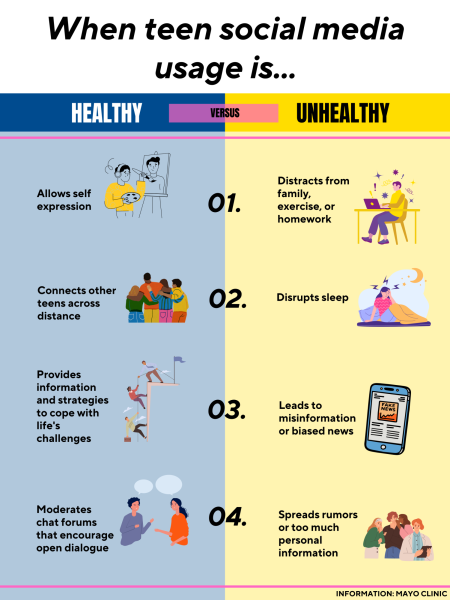In what shocked many of the 425 upper school students, the administration enacted a new phone policy starting in November with a trial run called No-Phone-Vember. Effective today, students will no longer have access to their phones from 8 a.m.-3 p.m.
According to Principal Minnie Lee, this policy is research-driven.
“Excellent schools are using research to make decisions around policy-making, and it would be irresponsible of me as an administrator to ignore that research.”
She mentioned a correlation between phone and social media usage and a decline in mental health, as well as research showing that the mere presence of phones is distracting and impedes learning.

While some of the more significant ideas regarding this policy have already been decided, many minor details are still under consideration with the help of the upper school council.
Co-president Cerena Karmaliani said while the council didn’t get to decide on whether or not the policy would happen, they get a large part in deciding how it unfolds.
“A lot of what USC is advocating for is — instead of them locking (your phone) somewhere–letting us keep it in our backpacks,” Karmaliani said.
Karmaliani said the council wants to continue to explore how phones might be used during free periods and study spaces.
While this policy is only for November, this decision could become the new full-time phone policy. USC is advocating for more say in the decision-making process, similar to when they rewrote the dress code and sexual harassment policy in previous years.
“From the conversations we have had with the dean and administration, it’s something they want to put in place full-time,” Karmaliani said.
Lee said, “As we promised, this is a trial, but I think it’s really important to gather feedback from students before and during the process so we can reflect on it and hopefully come to a consensus on how to move forward.”
However, the majority of students are against this policy. According to data shared from a poll they sent to the student body last week, 87% of students reported dissatisfaction with the change.
Ninth-grader Naomi Zins expressed concerns about communication: “I want to talk to friends throughout the day,” she said.
She agrees with Karmaliani that the student body is mostly against a phone-free school day.
However, despite previous concerns, both students and staff members can find positives in the policy. Zins mentioned she would have better conversations with classmates, “I’ll be able to talk to friends more and people I don’t talk to as much because they won’t be distracted by their phones,” she said.
Principal Lee hopes this new policy will be a learning experience for all.
“I hope that we all gain some self-betterment and self-awareness,” she said. “I want students to know this isn’t punitive. We’re not doing it to students; we’re doing it for them because you matter to us.”
Phone free months are a growing trend after the Surgeon General declared adolescent cell phone use a public health crisis.